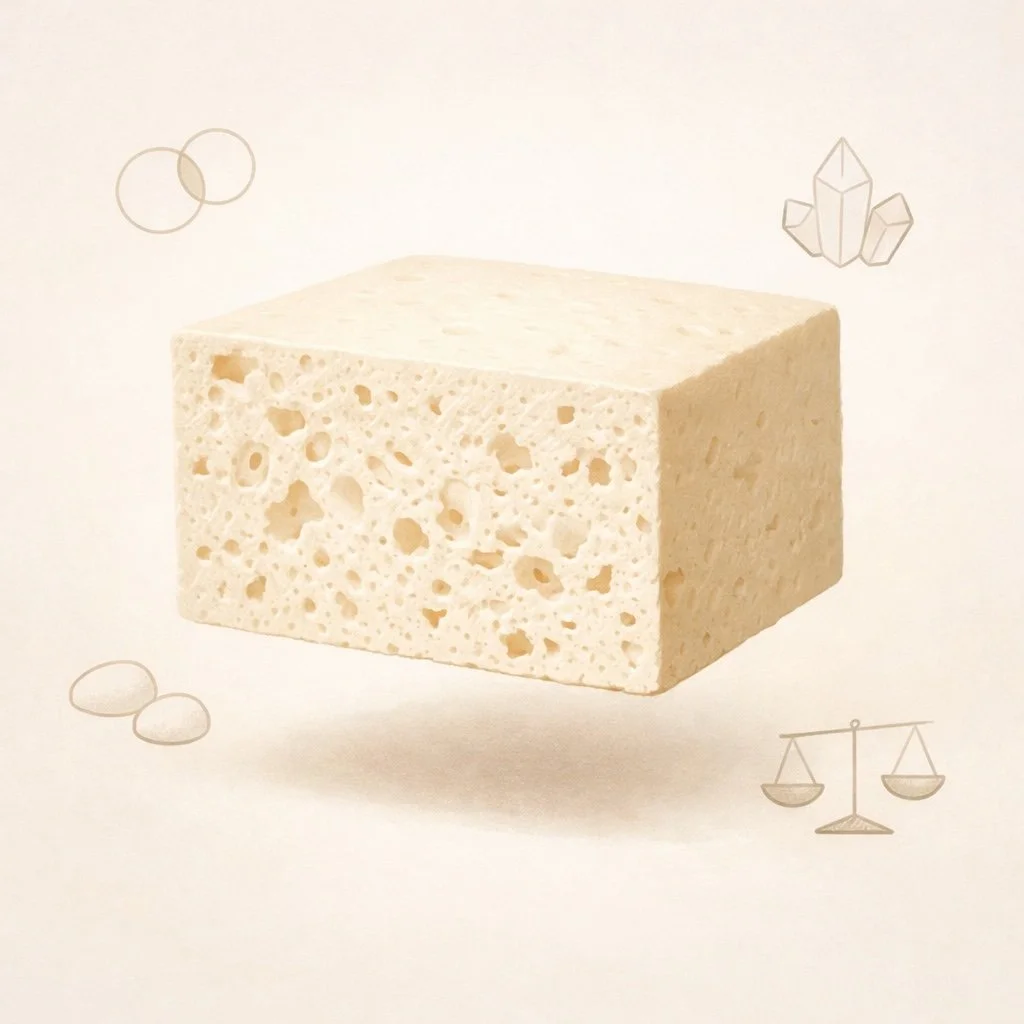Tofu Under a Microscope: Breaking Down Its Nutritional Power
Introduction: Beyond the Health Halo
Tofu’s reputation is strangely split. To some, it’s a bland “health food”. To others, it’s a miracle protein. The truth is far more interesting—and far more powerful.
To understand tofu’s nutritional value, we have to stop treating it like a replacement for meat and start treating it like what it is: a structured soy protein gel, designed by chemistry, shaped by minerals, and balanced by nature.
This article puts tofu under a microscope—literally and nutritionally—to examine what it delivers, how it behaves in the body, and why it deserves a central place on the plate.
1. Protein: Complete, Efficient, and Gentle
Is tofu a complete protein?
Yes. Tofu contains all nine essential amino acids required by the human body. Unlike many plant foods that rely on pairing (rice + beans), tofu stands on its own.
Protein quality, not just quantity
Per 100g, firm tofu provides approximately 8–12g of protein, depending on brand and coagulant. More importantly, its Protein Digestibility-Corrected Amino Acid Score (PDCAAS) is high, comparable to eggs and dairy.
What makes tofu unique is not brute protein density, but digestive efficiency:
No connective tissue
No cholesterol
No inflammatory heme iron
This makes tofu protein:
Easier on digestion
Less metabolically taxing
Suitable across ages and dietary needs
Protein without physiological stress is an underrated advantage.
2. Fats: Small Amounts, Smart Structure
Tofu is not a high-fat food, but the fats it contains matter.
Fat profile overview
Mostly polyunsaturated and monounsaturated fats
Contains omega-6 fatty acids (linoleic acid)
Naturally cholesterol-free
The total fat content varies by firmness:
Silken tofu: ~2–3g fat per 100g
Firm tofu: ~4–6g fat per 100g
These fats:
Support cell membrane health
Aid absorption of fat-soluble vitamins
Contribute subtle richness without heaviness
Tofu doesn’t rely on fat for flavour—making it an ideal canvas for intentional seasoning.
3. Minerals: Calcium, Magnesium, and the Coagulant Effect
One of tofu’s most overlooked strengths lies in how it’s made.
Calcium-set vs magnesium-set tofu
The coagulant used to set soy milk into tofu determines its mineral profile:
Calcium sulfate–set tofu
Can provide 20–40% of daily calcium needs per serve
Supports bone health without dairy
Neutral flavour, tender structure
Magnesium chloride (nigari)–set tofu
Higher in magnesium
Slightly firmer, springier texture
Supports muscle and nerve function
This means tofu isn’t just protein—it’s a mineral delivery system, especially valuable in plant-based diets.
4. Isoflavones: Phytoestrogens Without the Fear
Soy’s most controversial compounds are also its most studied.
What are isoflavones?
Isoflavones are plant compounds that weakly mimic estrogen—but only in specific tissues and contexts.
Decades of large-scale research show:
No increased risk of breast cancer
No hormonal disruption in men
Possible protective effects for heart and bone health
Tofu contains moderate, food-level amounts of isoflavones—far below concentrated supplements.
In whole-food form, isoflavones behave as regulators, not disruptors.
5. Carbohydrates & Fibre: Quiet but Supportive
Tofu is naturally low in carbohydrates:
~1–2g carbs per 100g
Minimal sugars
Small but meaningful fibre content
While not a fibre powerhouse, tofu:
Supports satiety
Stabilises blood sugar when paired with vegetables and grains
Fits seamlessly into low-GI meals
Its role is structural and supportive—never dominant, never destabilising.
6. Sodium & Processing: Clearing the Confusion
Plain tofu is not salty. Any sodium content typically comes from:
Preservation liquid
Flavoured or pre-marinated varieties
Unseasoned tofu contains very low sodium, making it ideal for:
Heart-conscious diets
Custom seasoning control
Global cuisines with diverse flavour profiles
Tofu is processed—but minimally and transparently:
Soybeans
Water
Heat
Mineral coagulant
That’s it.
7. Tofu vs Animal Protein: A Different Equation
Tofu isn’t trying to win on brute numbers. It wins on efficiency.
Compared to animal protein, tofu delivers:
Protein without cholesterol
Calcium without saturated fat
Iron without oxidative stress
Satiety without heaviness
It feeds the body without burdening systems designed for balance.
Final Takeaway: Nutrition With Intention
Tofu’s power lies in its quiet precision.
It doesn’t overwhelm. It supports.
It doesn’t dominate a meal—it stabilises it.
Understanding tofu nutritionally changes how you cook it, pair it, and value it. It stops being “healthy food” and becomes functional nourishment—flexible, complete, and deeply human.
In a world of extremes, tofu offers balance.
And sometimes, that’s the most powerful nutrition of all. 🌱

